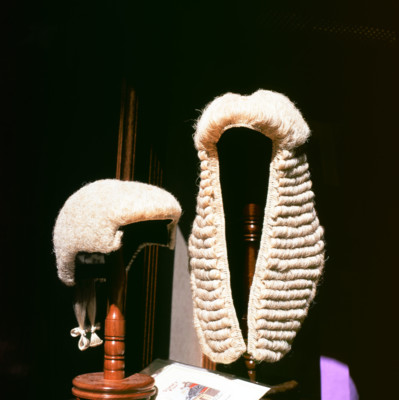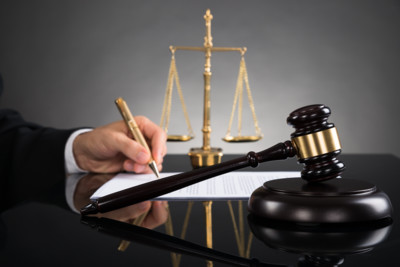Police Operations (3)

Powers to Stop and Direct
Vehicles and Pedestrians.
The Road Traffic Act 1988
s35
provide a Police Officer with
varying degrees of power to
stop a vehicles;
DRIVERS TO COMPLY WITH
TRAFFIC DIRECTIONS.
the term is,
drivers who refuse or neglect
to comply with traffic directions
given by a police constable.
Offence
(1) Where a constable or traffic
officer is for the time being
engaged in the regulation of
traffic in a road,a person driving
or propelling a vehicle who
neglects or refuses
(a) to stop the vehicle;or
(b) to make it proceed in,or keep
to,a particular line of traffic,
when directed to do so by the
constable in the exercise of his
duty or the traffic officer is guilty
of an offence
The constable/traffic officer,
must be engaged in the
regulation of traffic and acting
in the EXECUTION of their
Duty.
Note,
stop does not automatically
mean that the driver must remain
stationary until signalled to
proceed,unless the direction was
to remain stationary
Directions to Pedestrians
RTA 1988 s37.
empowers a constable in
uniform or traffic officer engaged
in the direction of vehicular
traffic on a road to also direct a
pedestrian walking along or
crossing the carriageway to stop.
Offence
Where a constable in uniform
or traffic officer is for the time
being engaged in the regulation
of vehicular traffic in a road,

a person on foot who proceeds
across or along the carriageway
in contravention of a direction to
stop given by the constable in the
EXECUTION of his duty or the
traffic officer,
either to persons on foot or to
persons on foot and other traffic,
is guilty of an offence.
Note.
a pedestrian breaching s37,
may be required to give their
name and address
Note
the constable must be in uniform
(include details in evidence).
TESTING THE CONDITION
OF VEHICLES ON A ROAD
RTA 1988 s67,
empowers authorised vehicle
examiners to test vehicles on
the road,but any vehicle stopped
for a test,
must be stopped by a Constable
in uniform,or suitably designated
PCSO or 'stopping officer'
Offence,
if a person obstructs an
AUTHORISED EXAMINER
acting under this section,or
fails to comply with a
requirement of this section
is guilty of an offence.
Definition
Constable authorised by or on
behalf of the CHIEF OFFICER
of Police.
Definition of Test
includes inspect or inspection.
Note
an authorised examiner may
test a motor vehicle on a road,
to ascertain whether it meets
construction and use requirements,
its condition does not involve a
danger of injury to any person.
for the purpose of testing a
vehicle the examiner may require the driver to comply
with reasonable instructions,
and to drive the vehicle.
the driver may elect for the
test to be deferred to a time
and place in accordance with
Sch 2,
however,if the vehicle has
been involved in an accident
on a road or it is so defective
that it ought not be allowed
to proceed
the constable may require that
the vehicle shall not be taken
away until the test has been
carried out
a constable who is not an
AUTHORISED EXAMINER
cannot use s67 to carry out
this test,
however,a constable can still
enforce regulations concerning
construction and use where the
driver is cooperative.
RTA 1988 s67.
Testing of condition of vehicle
on road.
(1) an authorised examiner may
test a motor vehicle on a road
for the purposes of
1(a) ascertaining whether the
following requirements;-namely
(1) the construction and use
requirements,and
(ii) the requirement that the
condition of the vehicle is not
such that its use on a road
would involve a danger of
injury to any person,are
complied with as respects the vehicle
(3) a vehicle shall not be
required to stop for a test
except by a constable in
uniform.
(3A) a stopping officer may
direct the driver of a vehicle
to stop for the purpose of a test
if the vehicle appears to the
officer to be one to which
subsection (3B) could apply.
(4) the following persons may
act as authorised examiners
for the purpose of this section
[and section 67A of this Act]
(b) a person appointed as
an examiner
(e) a constable appointed by a
Chief Officer of Police in
England or Wales.
(5) a person mentioned in
subsection (4)(a) to (d) must
PRODUCE HIS AUTHORITY
to act for the purposes of this
section if required to do so.
What then does it mean
'acting in execution of his duty?'
The Road Vehicle
(power to stop) Regulation 2011
defines the meaning
R v Waterfield [1963] 3 All
ER 659
Judge Lord CJ Ashworth
after quashing the convictions
of the defendant,he made an
important analysis of the
requirements needed to show
that a Police Officer was in the
execution duties
"in most cases it probably more
convenient to consider what the
Police Officer was actually doing
and in such conduct prima facie
an unlawful interference with a
person's liberty.
a) such conduct falls within the
general scope of any duty
imposed by statute or
recognised at common law
and,
b) whether such conduct,albeit
within the general scope of such
a duty,involved an unjustifiable
use of powers associated with
the duty.
Thus,while it is no doubt to say
in general terms,that police
constables have a duty to prevent
crime and a duty, when crime
is committed,
to bring the offender to justice,
it is clear from the decided
case,
that when the execution
of these general duties involves
interference with the person
or property of a private person
the powers of constables are
not limited".

Hoffman v Thomas [1974]
RTR 182;
the Court held that a Constable,
must be acting in execution of
his duty to be lawful.
the issue for Hoffman was
whether the Police Constable
had power to require a motorist
to stop and at a census point.
the Court found that assisting
the conduct of a census,was not
part of the Police Officers Duty.
which at common law is to
protect life and property.
The purpose of the
Road Vehicles (power to stop)
Regulation 2011 is to provide
examiners from the VOSA,
direct powers to stop
Commercial Vehicles at the
roadside.
These Regulations amend the
RTA 1988,Power to appoint
'stopping officers'
Providing 'stopping officers' with
powers to stop certain
commercial vehicles on the
roads,
for the purpose of Specific
Checks
the person to be appointed is
suitable,capable and
adequately trained to exercise,
the powers for which that
person is being appointed.
They are only permitted to
exercise such power whilst
wearing approved uniforms.
These Regulations create
offences of IMPERSONATING
and Willingly Obstructing
'stopping officers'
